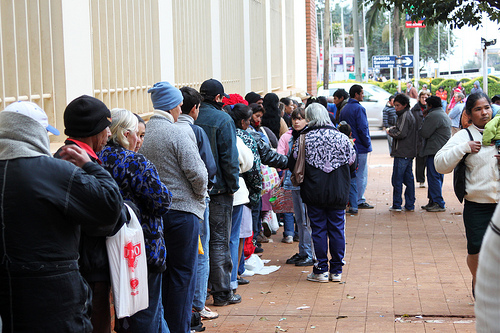Geneva/New York, October 8 – Unemployment, infectious diseases and fiscal crisis are at the top of global concerns for business executives in 2020 as countries worldwide are still struggling to contain the coronavirus, the World Economic Forum (WEF) said in advance of its inaugural Job Reset Summit. The summit is scheduled to take place 20-23 October in Geneva, which aims to “shape inclusive, fair and sustainable economies, societies and workplaces”. WEF said climate risks such as natural disasters, biodiversity loss and ecosystem collapse are also issues at the top of global concerns. WEF said the findings are part of its Regional Risks for Doing Business 2020, resulting from a survey of over 12,000 business leaders in 127 countries. Infectious diseases jumped to the top main concerns from its 18th spot in previous years because of the pandemic, which has claimed over 1 million lives and infected over 36 million people. The survey on infectious diseases was carried in countries in East and South Asia, the Pacific, Europe, Latin America and the Caribbean, Middle East and North Africa, North America, and sub-Saharan Africa. “The employment disruptions caused by the pandemic, rising automation and the transition to greener economies are fundamentally changing labour markets.” Saadia Zahidi, Managing Director at the World Economic Forum, said.of “As we emerge from the crisis, leaders have a remarkable opportunity to create new jobs, support living wages, and reimagine social safety nets to adequately meet the challenges in the labour markets of tomorrow.” “COVID-19 is distracting us from certain long-term risks that will be around long after the current crisis is resolved,” said Peter Giger, Group Chief Risk Officer, Zurich Insurance Group. “But the pandemic is also having the positive effect of leading many to reassess priorities. This, I hope, will ensure that businesses advance their risk resilience strategies and result in decisive and impactful action to combat existential risks like climate change.” “The COVID-19 crisis has shone a spotlight on organizational resilience. As firms look to the future, they are matching their risk and resilience arrangements with a threat landscape marked by significant customer and workforce behavioural shifts. Just as economic and climate concerns will require firms to refocus business plans, a greater reliance on digital infrastructures will mean a marked increase in cyber risk exposures. To optimize recovery, organizations will need to build greater preparedness into their business models in order to be more resilient in the face of future disruptions,” said John Doyle, President and Chief Executive Officer of Marsh. “The global pandemic has unleashed untold damage to our economies and societies. Business leaders in Asia have recognized that risk in their response to the Forum’s survey, with infectious diseases appearing as the number one risk for the region. As new partners to the initiative, we are working to better understand the interconnections between the risks perceptions of business leaders and their broader multistakeholder community. What we already know is that tackling the intersecting risks of pandemic, financial risks, and climate change will be a cornerstone of the desired new normal,” said Lee Hyung Hee President, Social Value Committee, SK Group. |
Unemployment and infectious diseases top global concerns for business in 2020, the World Economic Forum says

Facebook
Twitter
Email
Print
